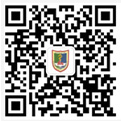On September 14th, 2025, the research team led by Professor Faming Zhang from the Second Affiliated Hospital with Nanjing Medical University (NMU) published a groundbreaking paper titled “Holdemanella biformis augments washed microbiota transplantation for the treatment of radiation enteritis” in the internationally renowned scientific journal Gut. The Second Affiliated Hospital was listed as the sole corresponding institution. This study provides a novel framework and paradigm for future microbiota transplantation research, and offers translational directions for the precision treatment of radiation enteritis.

The study demonstrates that washed microbiota transplantation (WMT) achieves significantly better theraputic effects on radiation enteritis than routine treatments, and identifies Holdemanella biformis as a key bacterium influencing patient response to WMT. Building on these findings, the team proposes a novel concept: augmented microbiota transplantation technology. In animal models, this enhanced approach showed significantly better therapeutic effects on radiation enteritis than both traditional WMT and single-bacterium treatments, while also revealing its underlying mechanisms of action.
This achievement represents a continuous progression by the team, from defining the global medical history of fecal microbiota transplantation, to defining and developing washed microbiota transplantation, and now to introducing augmented microbiota transplantation technology. It marks a new breakthrough in the concepts and techniques of microbiota-based treatments.

Professor Faming Zhang and Professor Bota Cui from the Center for Digestive Medicine and the Department of Microbiotal Medicine at the Second Affiliated Hospital of NMU served as co-corresponding authors. Weihong Wang, You Yu, and Rui Wang from the team were co-first authors. This study was supported by the National Natural Science Foundation of China and other funding programs.
Link:https://gut.bmj.com/content/early/2025/09/14/gutjnl-2025-335230
(Drafted by Professor Faming Zhang’s Research Group; Reviewed by Baixin Shen and Jieyun Wang; Translation revised by Bei Zhang)



